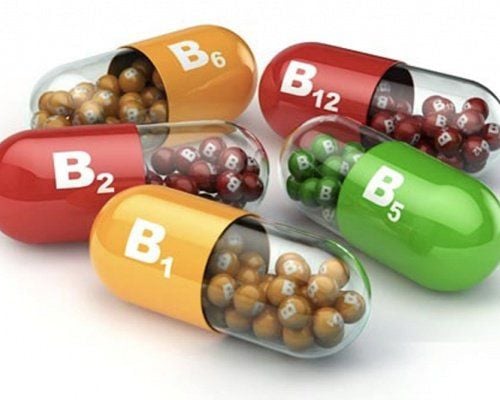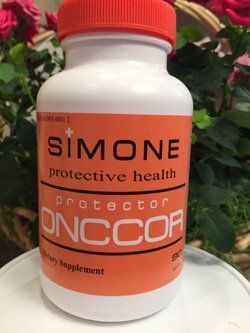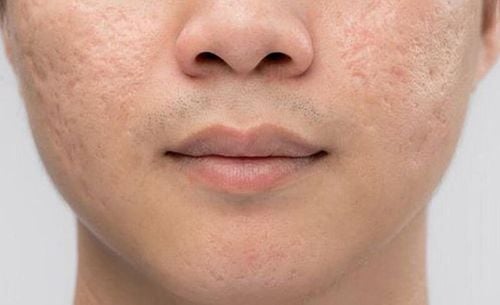This is an automatically translated article.
Apricots are small, yellow, sour-tasting fruits with a hard seed in the middle. Like most fruits, apricots are packed with vitamins and minerals and are a great addition to a healthy diet. This article lists four potential health benefits of apricots, looks at their nutritional value, and suggests some ways people can add apricots to your diet.1. Things you may not know about apricots
Apricots may be small, but they contain a lot of nutrients needed by the body. Apricots in particular and orange-yellow fruits in general are rich in vitamins and minerals, with flavors ranging from sweet to tart, depending on the variety. The flesh of apricots is soft and somewhat succulent when ripe and they have velvety skin with soft fluff. The apricot is believed to have originated in China, where it was first grown about 4,000 years ago. This delicious fruit is loved by locals, traders and visitors alike, so it's no surprise that it has begun its journey west along the famous Silk Road. Over time, apricots began to grow throughout Central Asia and the Middle East.Dreamed of the Mediterranean about 2,000 years ago, where they proliferated in a warm, sunny climate. Today, Turkey and Iran are the largest apricot producing countries in the world. There are different types of apricots to enjoy, the most popular being Blenheim, Tilton and Moorpark.
2. 9 health and nutritional benefits of apricots
2.1. Very nutritious and low in calories Apricots are very nutritious and contain many essential vitamins and minerals. Just 2 fresh apricots (about 70 grams) can provide:Calories: 34 Carbs: 8 grams Protein: 1 gram Fat: 0.27 grams Fiber: 1.5 grams Vitamin A: 8% of needs DV Vitamin C : 8% DV Vitamin E : 4% DV Potassium : 4% DV What's more, this fruit is a good source Rich in beta carotene, lutein and zeaxanthin, all of which are powerful antioxidants that help neutralize free radicals in your body and slow down the aging process. It is best to enjoy apricots whole and unpeeled as the skins contain a large amount of fiber and nutrients. However, you still need to remove the seeds because the apricot kernel is the only thing we cannot eat.

Quả mơ tươi là loại quả giàu dinh dưỡng và ít calo
In a study in 2,375 people, researchers developed a scoring system to measure changes in levels of inflammatory markers. They found that high levels of flavonoids and anthocyanins were associated with lower inflammation scores of 42% and 73%, respectively. Eating more flavonoids was also associated with a 56% lower oxidative stress score
2.3. May promote vision health Apricots have many compounds essential for eye health, including vitamin A and vitamin E. Vitamin A plays an important role in preventing night blindness, a disorder due to lack of light pigment in the eyes, while vitamin E is a fat soluble antioxidant that directly enters our eyes to protect them from the damaging effects of free radicals.
Meanwhile, beta carotene - which gives apricots their orange-yellow color - acts as a precursor to vitamin A, which means the body can convert it into this vitamin. Other important carotenoids in apricots include lutein and zeaxanthin. Found in the retina of the eye, protects the eye against oxidative stress
2.4. May Improve Skin Health Eating apricots can benefit your skin. The main cause of wrinkles and skin damage is due to environmental factors, such as sun exposure, pollution, and cigarette smoke. What's more, research shows a direct link between ultraviolet (UV) light exposure, sunburn, and an increased risk of melanoma, a deadly form of skin cancer. Notably, you can combat some of this skin damage through a healthy diet full of antioxidants that apricots provide. Vitamin C and vitamin E, both found in this fruit, can support your skin. In particular, vitamin C fights the harmful effects of UV rays and environmental pollutants by neutralizing free radicals. Furthermore, this vitamin helps in collagen formation, which gives your skin strength and elasticity. Eating a diet rich in vitamin C can help your skin heal from UV damage and prevent wrinkles.
Beta carotene, another nutrient in apricots, can protect skin from sunburn. In one 10-week study, taking beta carotene supplements reduced the risk of sunburn by 20%. However, the advice from experts is that we still need to protect our skin with sunscreen under the influence of the sun.
2.5. May Boost Digestive Health Apricots have been shown to promote gut health. One cup (equivalent to 165 grams) of sliced apricots provides 3.3 grams of fiber, equivalent to 8.6% and 13.2% of the recommended daily requirements for men and women
Apricots contain both nutrients soluble and insoluble fibers. The water-soluble type includes pectin, gum, and long chains called polysaccharides, while the water-insoluble type includes cellulose, hemicellulose, and lignin.

Quả mơ tươi giúp bạn có hệ tiêu hóa khỏe mạnh
2.6. Apricots are high in potassium Apricots are high in potassium, a mineral that also acts as an electrolyte. In our bodies, potassium is responsible for sending nerve signals and regulating muscle contractions and fluid balance. Two apricots (70 grams) provide 181 mg of this mineral, which is 4% of the body's recommended daily requirement.
Because potassium works closely with sodium to maintain fluid balance, adequate intake of potassium can help prevent bloating and maintain healthy blood pressure readings. An analysis of the results of 33 studies found that a diet rich in potassium significantly reduced blood pressure and reduced the risk of stroke by 24%.
2.7. Apricots are very moisturizing Like most fruits, apricots are naturally high in water, which can help regulate blood pressure, body temperature, joint health and heart rate. One cup (165 grams) of sliced fresh apricots provides almost 2/3 cup (142 ml) of water. Since most people don't drink enough water, eating fresh fruit can help them meet their daily water requirements.
If you are dehydrated, your blood will become thicker, forcing your heart to work harder to pump blood. Furthermore, staying hydrated allows the blood to circulate and deliver nutrients to all organs in the body. What's more, eating apricots can be an easy way to replenish both water and electrolytes lost after exercise, as the fruit provides an abundance of water and potassium.
2.8. May protect the liver Some data suggests that apricots may help protect the liver from oxidative stress. In two animal studies, rats given apricot wine had lower levels of liver enzymes and inflammatory markers than mice given alcohol but without apricots. This study suggests that apricots can help prevent liver damage because of their naturally high antioxidant content.
However, since these are only animal studies, it is difficult to conclude whether dreams have the same effects in humans. More human studies are still needed to clarify this issue
2.9. Easy to Add to Your Diet Both fresh and dried apricots are simple, delicious and easy snacks to add to your favorite meals. You can add them to your diet in a variety of ways, including:

Cả mơ tươi và mơ sấy khô đều có thể bổ sung vào bữa ăn nhẹ của bạn
Apricot is a familiar, relatively popular fruit that contains many vitamins, fiber and antioxidant compounds. They have many health benefits, including improved vision, skin protection and digestive health.... Fresh or dried apricots are also easy to add to your daily diet. Every day of us, from adding to yogurt, salad to adding to dishes in the main meal.... Due to their sweet and sour taste, apricots are also easy to substitute for peaches or plums in recipes. daily cooking.
Please dial HOTLINE for more information or register for an appointment HERE. Download MyVinmec app to make appointments faster and to manage your bookings easily.
Reference sources: webmd.com, healthline.com, medicalnewstoday.com












